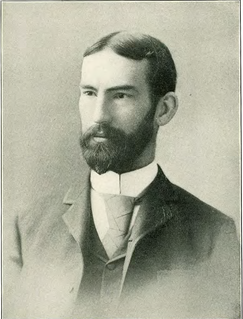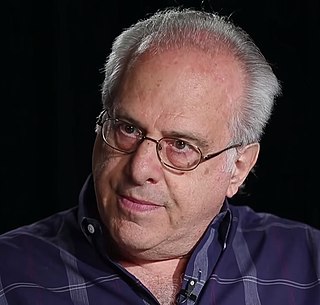Related Research Articles

Manuel Castells Oliván is a Spanish sociologist especially associated with research on the information society, communication and globalization. In January 2020, he was appointed Minister of Universities in the Sánchez II Government of Spain.
William Julius Wilson is an American sociologist. He is a professor at Harvard University and author of works on urban sociology, race and class issues. Laureate of the National Medal of Science, he served as the 80th President of the American Sociological Association, was a member of numerous national boards and commissions. He identified the importance of neighborhood effects and demonstrated how limited employment opportunities and weakened institutional resources exacerbated poverty within American inner-city neighborhoods.

Richmond Mayo-Smith was an American economist noted for his work in statistics. He was born in Troy, Ohio, educated at Amherst College, then at Berlin and Heidelberg University. He became assistant professor of economics at Columbia University in 1877. He was an adjunct professor from 1878 to 1883, when he was appointed professor of political economy and social science, a post which he held until his death in 1901.
János Kornai, until 1945 János Kornhauser, is a Hungarian economist noted for his analysis and criticism of the command economies of Eastern European communist states.

Juliet B. Schor is an economist and Sociology Professor at Boston College. She has studied trends in working time, consumerism, the relationship between work and family, women's issues and economic inequality, and concerns about climate change in the environment. From 2010 to 2017, she studied the sharing economy under a large research project funded by the MacArthur Foundation.
Larry King is an American broadcaster.
Peter B. Evans, Professor of Sociology and the Marjorie Meyer Eliaser Professor of International Studies at the University of California, Berkeley, received his BA magna cum laude from Harvard, an MA from Oxford University, and an MA and PhD from Harvard. He is a political sociologist whose work focuses on the comparative political economy of development and globalization. He has published widely on state-society relations, industrial economic development in Brazil and Latin America, civil society, and international development issues. His work is thus also relevant to the international political economy research literature.
James R. Crotty is an American Post-Keynesian macroeconomist whose research in theory and policy attempts to integrate the complementary analytical strengths of the Marxian and Keynesian traditions. He has made contributions to the social structure of accumulation (SSA) theory; the implications of radical uncertainty for macro theory and theories of financial markets.

Samuel Stebbins Bowles, is an American economist and Professor Emeritus at the University of Massachusetts Amherst, where he continues to teach courses on microeconomics and the theory of institutions. His work belongs to the neo-Marxian tradition of economic thought. However, his perspective on economics is eclectic and draws on various schools of thought, including what he and others refer to as post-Walrasian economics.

Richard David Wolff is an American Marxian economist, known for his work on economic methodology and class analysis. He is Professor Emeritus of Economics at the University of Massachusetts Amherst, and currently a Visiting Professor in the Graduate Program in International Affairs of the New School in New York. Wolff has also taught economics at Yale University, City University of New York, University of Utah, University of Paris I (Sorbonne), and The Brecht Forum in New York City.
Austin Sarat is William Nelson Cromwell professor of Jurisprudence and Political Science at Amherst College in Amherst, Massachusetts. He is also a Five College Fortieth Anniversary Professor. He has written, co-written, or edited more than fifty books in the fields of law and political science. Professor Sarat received a B.A. from Providence College in 1969, and both an M.A. and Ph.D from the University of Wisconsin-Madison in 1970 and 1973, respectively. He also received a J.D. from Yale Law School in 1988.

Kenyon Leech Butterfield was an American agricultural scientist and college administrator known for developing the Cooperative Extension Service at the Land Grant Universities. He was president of the Rhode Island College of Agriculture and Mechanic Arts (1903-1906); the Massachusetts Agricultural College (1906-1924), and the Michigan Agricultural College, from 1924 to 1928.
Nikolas Rose is a British sociologist and social theorist. He is Professor of Sociology in the Department of Global Health and Social Medicine at King's College London, having joined King's in January 2012 to found this new Department. Previously he was the James Martin White Professor of Sociology at the London School of Economics, director and founder of LSE's BIOS Centre for the Study of Bioscience, Biomedicine, Biotechnology and Society from 2002 to 2011, and Head of the LSE Department of Sociology (2002–2006). He was previously Professor of Sociology at Goldsmiths, University of London, where he had been Head of the Department of Sociology, Pro-Warden for Research and Head of the Goldsmiths Centre for Urban and Community Research and Director of a major evaluation of urban regeneration in South East London.

Herbert Gintis is an American economist, behavioral scientist, and educator known for his theoretical contributions to sociobiology, especially altruism, cooperation, epistemic game theory, gene-culture coevolution, efficiency wages, strong reciprocity, and human capital theory. Throughout his career, he has worked extensively with economist Samuel Bowles. Their landmark book, Schooling in Capitalist America, has had multiple editions in five languages since it was first published in 1976. Their most recent book, A Cooperative Species: Human Reciprocity and its Evolution was published by Princeton University Press in 2011.
Joseph W. Whitecotton is an American academic anthropologist and ethnohistorian, a specialist in Latin American cultural anthropology and in particular of Mesoamerican cultures. His primary research focus has been on the Zapotec civilization of central Mexico and Oaxaca, and he is the author of half a dozen monographs on the subject. In addition to his research on the Zapotec, Whitecotton has made contributions in historical ethnography, the study of political economies and the effects of globalization trends on local cultures. He has also investigated evidence for pre-Columbian contacts and trade between Mesoamerica and cultures in the American Southwest, and conducted ethnographical research of the Hispanos in New Mexico. Whitecotton is also a performing jazz musician and has written on the influences of jazz in popular culture.
Peter M. Haas is a professor of Political Science at the University of Massachusetts Amherst and the Karl Deutsch Visiting Professor at the Wissenschaftszentrum Berlin.
Peter Henry Rossi was a prominent sociologist best known for his research on the origin of homelessness, and documenting the changing face of American homelessness in the 1980s. Rossi was also known for his work devising ways to evaluate federally funded initiatives in education, health services, crime control, and housing. He influentially applied his sociological expertise to affect related policy-making and funding agencies. At his death, he was the Stuart A. Rice professor emeritus of Sociology and the Director Emeritus of the Social and Demographic Research Institute (SADRI) at the University of Massachusetts Amherst.
Hans Speier was a German-American sociologist who worked with the United States Government as a Germany expert both during and after World War II. He also published several books on German politics and culture throughout the middle half of the 20th Century.

Donald "Don" Tomaskovic-Devey is a professor of sociology at the University of Massachusetts Amherst.
References
- ↑ "Lawrence King". Amherst, Massachusetts: University of Massachusetts Amherst. Retrieved 28 March 2018.
- 1 2 "Lawrence Peter King". University of Cambridge, Department of Sociology. 2016. Retrieved 24 June 2016.
| This biography of an American sociologist is a stub. You can help Wikipedia by expanding it. |